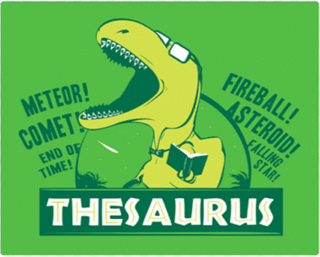Cultivating Your Vocabulary
Students often feel like vocabulary is one of the biggest hurdles to preparing for the GRE. While vocabulary on the old GRE, pre-2011 played a very outsized role in comprising the verbal score, it’s still important today, although it’s more tied to context, use, and logical thinking. if you have more than a few weeks to study, you’ll be well served to grow your vocabulary. Augmenting your vocabulary with those occasional words, the ones that you only see often enough to feel annoyed with yourself for forgetting, is a skill that you may need in a range of disciplines and professions.
1. Roots and Groups
Some sources suggest you start with words parts: roots, prefixes, and suffixes. But be careful! English comes from Latin, Greek, and more recent Germanic languages, as well as less numerous contributions from all over the globe, and these word parts from different origins are mixed together unpredictably. If you want to build your vocab by learning prefixes, suffixes, and roots, just study the list of words printed next to those roots; don’t assume they apply to just any other words with with same cluster of letters.
Studying words grouped by meaning is a similar strategy, since a shared root guarantees some similarity in meaning. For example, reprobate, curmudgeon, and misanthrope all have similar (albeit distinct) meanings. But text completion answer choices that require you to distinguish between verify and scrutinize, or restive and vociferous will likely penalize your for lumping your definitions together. If you take this approach, make sure to delineate the differences between the relevant words.
2. Be Yourself
Going through an alphabetical vocab list is tedious, and perhaps even inefficient, but it doesn’t lead to confusion. If you take this approach, make sure to reinforce the meanings in the most meaningful way you can. Some students find simple memorization-based self-quizzing to be the most satisfying approach, but the most effective approach requires a bit more creativity and personal investment: making meaningful connections. While writing synonyms, definitions, and example sentences all help build connections to prior knowledge, you can do it through writing personally meaningful sentences or making idiosyncratic, non-logic connections to words -- a strategy known as mnemonics.
Personally meaningful sentences are emotionally significant, so imagine that my English teacher recently shattered by dreams by telling me to stop using million-dollar words that I don’t really understand in my writing. If this experience really struck a chord with me, I’d make a sentence about how I need to stop embellishing my writing with GRE words. A mnemonic device, in contrast, might focus on the sound of the word, among other meaningful associations. Say that I recently say a classical Indian dance performance in which the performers wore bells on their ankles, and this embellishment added to the sound and feel of the show. Or perhaps I like to embellish my hot dogs with bright green relish. Or perhaps I’ve been wanting to decorate my apartment, and so I picture it embellished with a disco ball and a the dancers from Saturday Night fever. These associations go either around or beyond the meaning of the word to something that is idiosyncratic and vivid enough to stick in your brain. While this approach may feel strange to some students, it’s strange because it’s challenging, and this kind of challenge with help you to remember.
Takeaway
In the end, your GRE score depends on deeper skills than vocabulary, such as analysis, deduction, synthesis, and critical thinking, but the kind of creativity you deploy for vocab-building serves you well because it introduces an element of play and personalization back into your study for the GRE and, really, any other subject.
Are you interested in working with a GRE tutor to help you improve that pesky score?
Interested in reading more GRE test-taking strategies? See below for more articles!


Comments